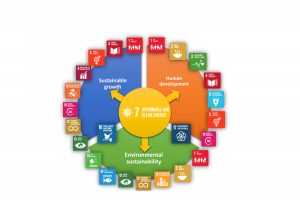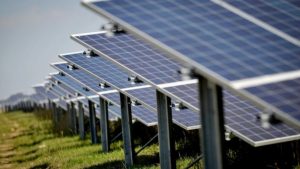Recent floods razing down public structures across Nigeria’s major cities – Lagos, Port Harcourt, and Asaba, amongst others, are clear fallouts of failures of authorities to make the most of huge valuable municipal wastes of the cities to generate electricity for a country that is so starved of it.
Recent downpours from the heaven have made mess of most Nigeria’s cities that largely do not have functional environmental cultures to be proud of.
The rains, which many meteorologists agree as not being particularly heavy, have continued to torment even affluent Nigerian neighbourhoods. From Victoria Islands; Lekki; and Ajah in the commercial city Lagos, to low income areas like Suleja in northern Niger state, as well as Mararaba in Nasarawa state, the story is almost parallel which is that cities in Nigeria do not recognize the enormous value they could gain from managing the waste they generate, and so gladly allow them drift off to clog existing drainage channels.
The myriad of factors that have had to play out to cause this unfortunate events with each situation almost exhibiting its own peculiar circumstances are associated with poor drainage planning and incompetent waste disposal cultures by community peoples.
Study after study on waste management in Nigeria had arrived at the bleak premise that Nigeria’s incompetence in responsible management of the environment would undoubtedly come back to haunt her. These studies also predicted that diseases; erosions; and most emphatically, floods, would be common events if nothing was done to better manage an estimated 3 million tonnes of Municipal Solid Waste (MSW) generated per year in the country.
They suggested that urgent actions should be initiated to the turn Nigeria’s waste into value, to secure the environment before it becomes quite too difficult a task to accomplish.
So, what is to be done now as folks collect wreckages from the flood?
An out of the box solution that is available to cities in the country would be to burn the unmanaged MSW, not just to destroy them, but by using modern incinerating practices to also generate electricity that could power homes and small businesses, whilst taking care of the drain clogging litters.
Appearing as a win-win, this type of power generation is called ‘Thermal Incineration’ and it involves burning waste to boil water which powers steam generators to create power. If properly utilized, incineration can revolutionize waste disposal and management in Nigeria.
At the moment, there are countries that have embraced and are benefitting from this form of waste disposal method. Specifically, Sweden; Germany; and even parts of the US currently use this technique for power generation, and they’ve recorded resounding successes in some cases. Sweden, for instance has become so proficient at its use of incinerators that it had to import some waste from neighbouring countries after it burnt out all of its generated waste.
As reported by experts, modern incineration techniques can burn up to 96 per cent of the paper; plastics and (some) metal waste, while biodegradable waste can be used in anaerobic digesters which can also produce flammable gas to generate power. In fact, only about one per cent of Sweden’s entire waste reportedly ends up in its landfills.
Though floods have become a routine in Nigeria in the last several years, there seems to be no concerted plan towards tackling the menace, and with the country’s increasing population, the time to change course on its management of waste should be now.
Most of Nigeria’s cities have not yet taken firm and enforceable regulations against unhealthy waste disposals and poor hygiene that are necessary to combat the troubling menace of flooding. This, in turn has resulted to the rise and spread of communal diseases such as cholera; typhoid; and polio amongst others, as well as flooding.
These cities which have also struggled with poor electricity supply from the country’s inadequate grid power, are equally yet to recognize the electricity generation potentials in their waste generations.
It therefore stands to reason that the preset methods of waste disposal in Nigeria need to be reassessed to ensure that all is being done to revert the sorry situation to a situation of benefit. Using landfills and dumpsites (which are sometimes located within cities) to get rid of trash have clearly not worked, and needs to be reviewed.
The options and alternatives available to Nigerian on this would be to convert its wastes to electricity using both thermal incineration and bio digesters models. With these two, Nigeria can begin to benefit from what presently looks like a crisis.
As a strong destination for investment in power by both local foreign investors, Nigeria can begin to create pockets of waste-to-power plants, leveraging on the recently passed law on mini-grid power generation by the NERC to power and sustain electricity consumptions of city dwellers and homes.
This will eventually end the country’s challenges with managing her environmental well and healthy.





